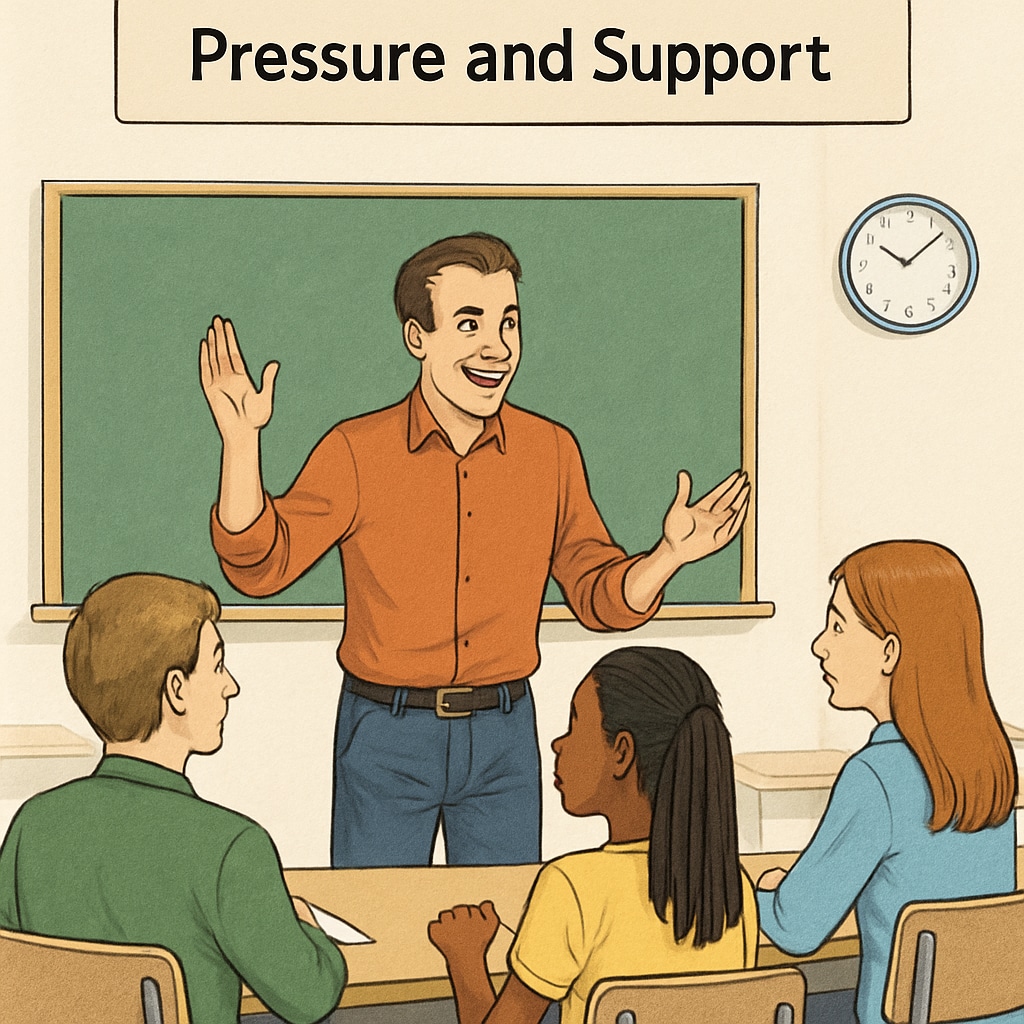In the movie Whiplash, the intense teaching style of the music instructor raises crucial questions about education methods, extreme pressure, and the balance between achievement and empathy. This cinematic exploration of ambition and personal limits resonates deeply with modern K12 education, where teachers often grapple with finding the middle ground between pushing students toward excellence and preserving their well-being. Understanding this ethical dilemma is vital to creating an impactful yet humane educational experience.
Extreme Pressure: The Pursuit of Excellence in Education
One of the most striking aspects of Whiplash is its portrayal of relentless pressure as a tool for achieving mastery. The teacher, Fletcher, employs harsh criticism and psychological manipulation to drive his student, Andrew, to his limits. While the results are remarkable, the cost is profound—emotional distress, social isolation, and potential long-term harm. This raises the question: how far should educators go in pushing students to excel?
In K12 education, extreme pressure can manifest in various forms, such as stringent academic expectations, competitive environments, or uncompromising discipline. While these strategies may yield short-term results, they risk alienating students and damaging their mental health. For example, research from the Britannica on Education highlights how excessive stress can lead to burnout and anxiety, undermining the core purpose of education.

Balancing Strictness with Empathy
Empathy is often overlooked in discussions about academic achievement. However, as modern education evolves, there is growing recognition of its importance in nurturing student growth. Strict teaching methods, if balanced with empathy, can motivate students without compromising their emotional health.
For example, the concept of “growth mindset,” popularized by psychologist Carol Dweck, emphasizes the role of encouragement and understanding in helping students overcome challenges. Unlike Fletcher’s methods, which rely on fear and dominance, empathetic approaches foster resilience and self-confidence. Educators can create environments that challenge students while also offering support—a crucial element in achieving sustainable success.
As a result, schools are increasingly adopting programs that integrate mental health support into academic structures. For instance, initiatives like social-emotional learning (SEL) prioritize understanding students’ emotional needs, creating a balanced approach to education. According to Wikipedia’s article on SEL, such frameworks help students develop interpersonal skills alongside academic competencies.

Ethical Implications: Where Do We Draw the Line?
The ethical dilemma presented in Whiplash is not just relevant to the arts but extends to all fields of education. Teachers must constantly evaluate their methods to ensure they are pushing students toward growth without crossing harmful boundaries. This is particularly significant in K12 education, where young students are still developing their identities and coping mechanisms.
To navigate this complex landscape, educators can consider the following principles:
- Individualized Support: Tailor challenges to each student’s abilities and needs rather than applying uniform standards.
- Transparent Communication: Foster open dialogue to understand students’ limits and aspirations.
- Holistic Development: Prioritize mental, emotional, and physical well-being alongside academic achievement.
These practices can help educators strike a balance, ensuring that students achieve their potential without compromising their health.
Conclusion: Lessons from Whiplash for K12 Education
The story of Whiplash is a powerful reminder of the ethical complexities inherent in education. While ambition and achievement are essential goals, they should not come at the expense of empathy and care. For K12 educators, the challenge is to push students toward their limits responsibly, fostering an environment that values both excellence and well-being.
Ultimately, education is not just about producing high achievers—it is about shaping individuals who can thrive both academically and emotionally. By reflecting on the lessons from Whiplash, educators can build systems that inspire greatness while maintaining the humanity of their students.
Readability guidance: This article employs short paragraphs, active voice, and transitional phrases to enhance clarity. Lists are used to summarize key points, ensuring accessibility for readers of various skill levels.


